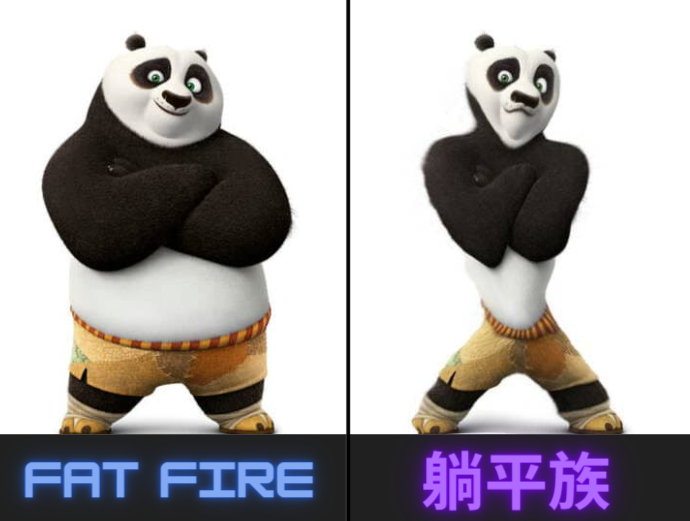What Exactly is Tang Ping?
躺平 as a movement started in China (obviously) a couple of months ago and caught fire (pun intended) on the internet forums.
Apparently, there was this jaded 26 year-old Chinese who decided to quit his mundane factory job even when he did not have much savings. He then likely spent a few months cycling around the country before settling back in his hometown. He now spends most of his time reading philosophy, earning relatively with random part-time odd jobs (like playing the role of a corpse in a show?) but has super low expenses. For example, he only eats two meals a day.
It is likely that hundreds of thousands of disillusioned Chinese youths were inspired by this sharing, which obviously worried the Chinese state. The state-controlled media then proceeded to crush the movement and even labelled it as a shameful ideology.
This then caught the attention of overseas media and eventually reached the shores of Singapore, with multiple online channels covering it. Just google.
How Different is Tang Ping to FIRE?
Honestly, I can empathise with the protagonist above. After all, yours truly did leave a comfy government job in my late twenties without any job offers lined up and proceeded to loaf around for 6 months.
So it is pretty natural that I just view Tang Ping as a more extreme form of FIRE, especially in the context of China. After all, for most people, like Tang Ping, FIRE is basically an escape from the drudgery of typical work.
 In my opinion, fat Po is cuter than an anorexic one
In my opinion, fat Po is cuter than an anorexic one
The 9-9-6 culture (work from 9am to 9pm for six days a week) rampant in China can be quite stifling, especially if stuck in a relatively low income job with no progress or end in sight.
What’s the point of working so hard when the odds of buying an apartment and getting a spouse are still heavily stacked against you?
The one-child policy also means that many of these Chinese youths will inherit the homes of their parents. Mortgage or rent is typically the most significant monthly expense in any city and with that out of the way, it is possible to eschew consumption, spend very little and 躺平.
However, what works for an individual does not translate well to the macro stage.
Xi is not a leader who will 躺平 and let the US trot over China. With US rallying its Western allies against China, China needs every citizen to buck up and be even more productive in order to maintain economic growth and challenge.
If the work and effort that you put in does not yield gains that accrue to you, it might be ok as the country will benefit.
Could Tang Ping Take Root in Singapore?
Singaporeans are still generally quite a sheltered and protected lot, compared to most overseas counterparts. Local property prices are undoubtedly increasing, but the inflation here is considered mild compared to what is happening in some US and China cities. It is nowhere close to the despair felt by youths in other countries.
We are also distant from a default 9-9-6 culture although with the unhappiness over the CECA policy, you can already sense some tension over competition in the jobs market. Cushy, high income, middleman jobs are dwindling rapidly in this changing economy.
That said, it probably does not take a lot to 躺平 or achieve an extremely LEAN FIRE in Singapore. Pared down to comfortable basics, maybe just $1k a month or $10k a year would do. I am talking about home-cooked or hawker meals and public transport. Obviously, no children and maybe not even marriage.
If the person inherits (or expects to inherit) a flat and an additional $200k, he does not even need to work full-time for a single day of his life.
Scary thoughts, huh?
The Peak of The Education Boom
At this point, I am actually wondering if such a “giving up the chase/grind and enjoy life” mentality could be observed even earlier in a person’s life. Like as early as teens in our education system.
Every Boomer or Gen X parent wants their child to get a degree.
It is likely that 30-40 percent of 25 year-olds today have a tertiary degree. However, in terms of lifetime income, I bet more than half of these degree holders will likely underperform a blue-collar local 25 year-old plumber, electrician or air-con serviceman.
Don’t get me wrong. If you are in the top quintile of graduates, a solid career path still lies ahead. Excellent academic credentials signal intelligence, discipline or more likely, a combination of both.
However, if your grades are just mediocre, the opportunities your average academic credentials grants you are fast hollowing out. Case in point, school teachers.
2 generations ago, a teacher could buy a terrace house. A generation ago, a teacher could ponder over a condo purchase. Nowadays, teachers struggle to afford resale flats near their schools.
If one is not cut out to compete in academic credentials, nothing wrong to give up and 躺平 in your studies. Just pivot early and start to create content on social media or pick up a vocational skill at a young age.
An upper middle class lifestyle in Singapore is still there for the taking. It’s only the traditional pathways that are dying.
Thank you for reading.
Related Articles:
Thoughts On The Blueprint For Singapore’s Future

I agree with your article. Overqualification, underemployment and gig economy are the new labor trends and suggest that aiming for tertiary qualifications is no longer sufficient.
Networking, soft skills, and being willing to be different from others are alternative and emerging pathways to material success.
My unsolicited advice for would-be grads – optimize for ROLE + BRAND NAME; if it requires you to work in Indonesia, Vietnam, UAE, etc. go for it.
5 years with McKinsey at Vietnam is significantly more valuable than 5 years with Big 4 consulting in Singapore / London.
The worst thing grads can do IMO is optimize for pay + location.